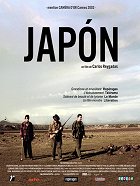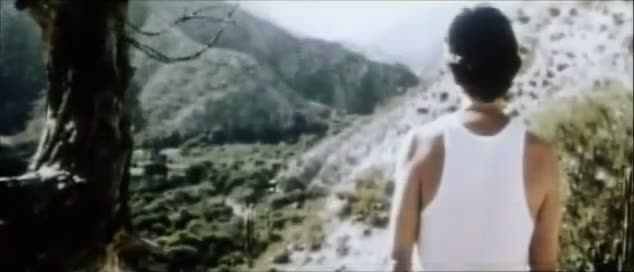Regie:
Carlos ReygadasDrehbuch:
Carlos ReygadasKamera:
Diego Martínez VignattiInhalte(1)
Ein namenloser Mann hinkt durch das mexikanische Hochland, auf einer Reise, die seine letzte sein soll. Er hasst sich und hat genug vom Leben. Er sucht die Einsamkeit der Berge, um sich auf den Tod vorzubereiten. In einem kleinen Dorf findet er Unterschlupf bei Ascen, einer alten Witwe, die etwas abseits in einer Steinhütte lebt. Ihr Neffe jedoch will sie aus der Hütte vertreiben. Vorsichtig entwickelt sich zwischen dem Mann und Ascen eine Beziehung. Gleichzeitig kämpft er jedoch mit seinem Drang nach Selbstzerstörung und seinen Gefühlen für Ascen und dem Wunsch, ihr zu helfen. (Verleiher-Text)
(mehr)Kritiken (1)
It starts like Solaris and ends like Stalker, but in between, you will see things you have never seen from Tarkovsky. Take, for example, the superbly “acted” scene of horses copulating, whose post-coital resonance is permeated with a feeling of emptiness and futility. However, Japón is not an ordinary festival drama filled with existential angst. Yes, the protagonist is clearly seeking spiritual redemption, but it seems that sex is the most effective treatment for his state of mind. Of course, one of the first images that becomes embedded in the viewer’s memory is the ceaselessly moving head of a bird (analogous to the way the protagonist has resigned himself to existence and is only living out his days), but a few minutes later, the protagonist announces with unexpected guilelessness that he has come to the mountains to kill himself, to which another man responds with absolute calm. The entire film is characterised by this blending of naturalism (which is aided by the 16mm camera and masterful work with natural light) and allegory, in which specific people merely represent certain general life principles. The physical aspect intermingles with the metaphysical and it is difficult to look away from it even though the narrative is extremely slow and we don’t really understand who is doing what or why most of the time. Moments that you would expect to be serious are unexpectedly funny (the preparation of the body before sex), sometimes the narrative switches from acted to documentary mode, when the (non-)actors casually look into the camera and give the impression that they are not following a script. As a self-taught filmmaker, Reygadas does not imitate festival dramas with his debut, but rather discovers his own filmmaking voice in a rather intuitive, unaffected way and offers a unique viewing experience. 85%
()

